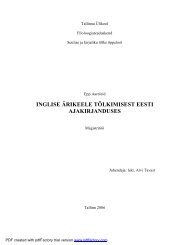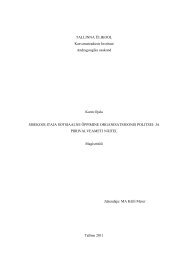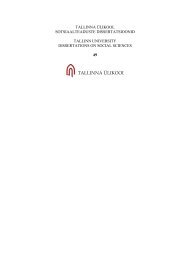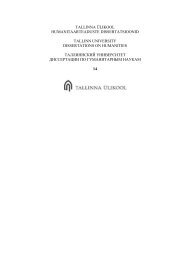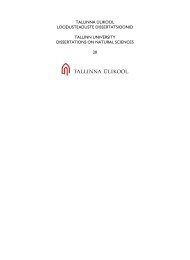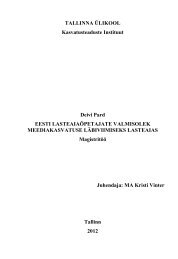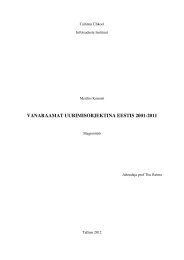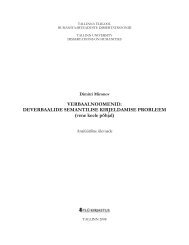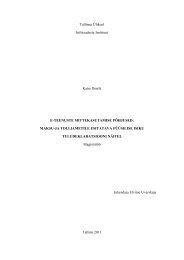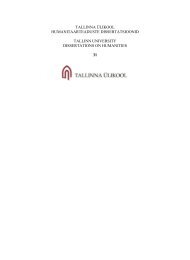Download (1157Kb) - E-Ait
Download (1157Kb) - E-Ait
Download (1157Kb) - E-Ait
Create successful ePaper yourself
Turn your PDF publications into a flip-book with our unique Google optimized e-Paper software.
Knowledge Management, intellectual capital and knowledge sharing are three key concepts<br />
of this research. At some point their relationship is somewhat of a conundrum. The<br />
perspective in this research project is that both intellectual capital and knowledge sharing are<br />
part of the broader term knowledge management. Intellectual capital focuses on such<br />
initiatives by an organisation to explore and use the tacit and explicit knowledge to add value<br />
whereby knowledge sharing can be one initiative under it. In the practical world, some<br />
practitioners regard knowledge management as misnomer and prefer to use knowledge<br />
sharing. However in this research I stress that not only knowledge management deals with<br />
knowledge sharing but it indeed concerns itself with the whole process of creating,<br />
distributing, applying and evaluating the results of the knowledge in question. I suggest that<br />
“management” is not necessarily meaning “control” it may as well mean the skilful handling<br />
or use of something such as resource see section 1.9 for the definition. This is precisely the<br />
best explanation for this research to base its arguments on.<br />
Many ways exist for the discussion of the intellectual capital. This research focuses on how<br />
intellectual capital can bring about the positive results in terms of knowledge sharing. It<br />
oversees the aspects of Human Capital and Structural Capital to suggest better ways to which<br />
knowledge sharing will be improved by the former and the latter resulting in improved<br />
performance.<br />
The relationship between intellectual capital and knowledge sharing is indeed binary.<br />
Intellectual capital may improve knowledge sharing and knowledge sharing may as well<br />
result in the formation of intellectual capital. If through sharing knowledge staff get to know<br />
what they did not know before, their intellectual level is improved and their performance may<br />
improve as well. However, the focus of this research is to see how human capital and<br />
structural capital may lead to better knowledge sharing. It looks at such things as motivation,<br />
incentives related to knowledge sharing, creativity, library values, competences and social<br />
skills as factors pertaining to Human Capital which may help improve knowledge sharing. It<br />
looks at such things as library structure, technological infrastructure and policies to mention<br />
but a few as part of structural capital which if they are managed better improvement in<br />
knowledge sharing may be achieved. In this research I hold that, human capital is the most<br />
valuable component and efforts for enhancing knowledge sharing through intellectual capital<br />
should start with human capital. The workforce‟s ability to share is first enhanced then the<br />
28




